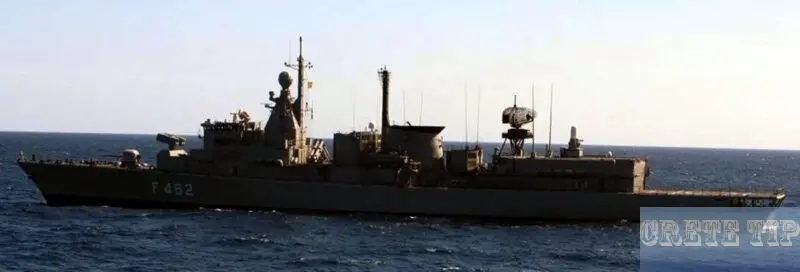A 26-year-old Azerbaijani man was arrested in Souda, Greece, facing serious espionage charges. He’d been in the country since January and caught attention after buying photographic equipment just before his arrest.

His Azerbaijani passport, issued in 2021, along with a Polish residence permit, links him to activities in several countries.
Apparently, Greek authorities didn’t notice his presence or actions for about half a year. The way he used locked electronic devices and moved around Souda hints at a pretty determined effort to collect sensitive info—definitely raises some eyebrows about local security.
The Two Versions

So, there are two main stories about how the 26-year-old Azerbaijani ended up caught in Crete.
The first version claims that Greek intelligence beefed up their presence in Crete because of military action in the Middle East. The US base at Souda plays a key role in those operations.
During that period, Greek officers apparently watched the man for a few days, then moved in with police to arrest him.
The other story says foreign intelligence services tipped off Greek authorities about the spy. If that’s true, outside agencies were the ones who spotted his activities.
Meanwhile, a 44-year-old Azerbaijani was picked up in Cyprus just a day earlier. British and Israeli intelligence agencies reportedly gave Cypriot officers the heads-up.
For four days, the younger Azerbaijani barely left his hotel room. He visited a kiosk once and a supermarket one time too, but otherwise, he was mostly seen on the shared balcony, staring out at Souda Bay.
Whenever he noticed a warship moving in or out of the naval base, he’d slip back to his room. From there, he took photos behind lowered shutters and half-open windows—pretty careful, honestly.
The camera’s memory card held the images, which he’d transfer to his laptop. He used encryption software to lock down the files before sending them off to someone nobody’s identified yet.
Both his laptop and iPhone were locked tight. Early checks showed he’d taken and deleted around 5,000 photos during his time in Greece.
When officers arrested him, they found a portable storage device tucked in his trousers. It held 23 videos and nine images, all documenting the movements of the frigate “Kountouriotis” on June 21, 2025, when it stopped for refueling at Souda’s naval base.
Item |
Details |
|---|---|
Age |
26 years |
Location |
Hotel in Souda, Crete |
Activities |
Photographed naval movements |
Storage devices |
Camera, memory card, laptop, USB drive |
Data found |
~5,000 photos (taken and deleted), 23 videos, 9 images |
Encryption |
Files encrypted before sending |
Arrest support |
Greek Police, possibly foreign intelligence |
The Cyprus Case
The Cyprus situation centers on a 44-year-old man who was arrested for espionage just outside the British military base in Limassol.
He leaned on encryption software to keep his messages hidden and carried a particular camera and tripod—pretty standard spy gear, I suppose. With these, he managed to record the comings and goings of military vehicles inside the base.
Police investigations uncovered a pattern: this guy operated a lot like another suspect nabbed later in Crete.
Authorities tied his activities to surveillance efforts that targeted strategic military assets. His Polish passport gave him a bit of cover, letting him slip around the region until his luck ran out.
Court documents say there’s a direct link between the 44-year-old and the Iranian Revolutionary Guard. That’s a pretty bold connection, hinting that his spying wasn’t just a solo gig but part of something much bigger.
The Cyprus police pulled together a hefty case file, with shots and logs of him snapping photos and keeping tabs on military movements.
Investigators also wondered if this man and the Crete suspect were more than just copycats—maybe they shared goals or even worked together somehow.
Key elements of the case include:
Aspect |
Details |
|---|---|
Surveillance Tools |
Encrypted communication, camera, tripod |
Location |
British military base, Limassol |
Nationality Document |
Polish passport |
Arrest |
|
Alleged Connection |
Iranian Revolutionary Guard |
His arrest happened after some classic police legwork and plenty of patience tracking his movements.
Cyprus authorities swapped info with their Greek counterparts, who were digging into similar cases. That back-and-forth helped piece together how the suspects might be linked.
Law enforcement is still sifting through the details, watching closely for any other threats tied to espionage in the eastern Mediterranean. There’s a sense that the story isn’t quite finished yet.




